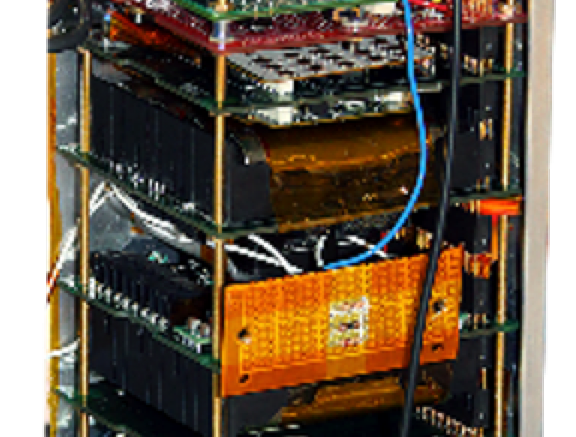The exponential growth of knowledge in the present world poses a significant challenge for human adaptation and learning.
Witold Kinsner is a professor of electronics and computer engineering at the U of M. His journey into technology began early in life.
“From my childhood, I’ve been building something that would be able to help us understand the answers better than just speculative answers,” Kinsner said. “I built computers, memories, all sorts of things that were at that time analog, then moved to digital.”
His current research focuses on developing cognitive digital twins, which are personalized, symbiotic systems designed to collaborate with humans in learning and problem-solving by analyzing massive amounts of knowledge beyond human abilities.
“The interest now has moved into cognitive systems,” Kinsner said. “Humans are cognitive. We have to recognize, then sense of it, and then develop an action to modify whatever requires modification. Computers now can do that, and with AI, artificial intelligence […] that is now possible.
“The idea that we would have computers only to help us understand what has happened is probably not sufficient […] I’ve been working now on cognitive digital twins that could be symbiotic with us […] It is a personalized type of tutors that could be developed.”
The Cog Digital-Twin Companion System demonstrates how cognitive digital twins provide customized, personalized learning instruction, concluding in a symbiotic interaction between students, practitioners and educational institutions.
These systems connect disciplines across faculties, providing knowledge as a service and implementing learning analytics to constantly improve the educational experience, enabling lifelong learning as well as co-operation among humans and technology.
Kinsner perceives education as growing through interdisciplinary approaches enhanced by cognitive digital twins. These twins are also valuable when considering the rapid increase in knowledge available to individuals today.
“The knowledge expansion — it’s called the knowledge tsunami — is so huge that humans cannot learn double the knowledge each 12 hours,” Kinsner explained. “We are not capable of doing it. We have difficulties learning within one lifetime, but that is in the past. So we need some help, some augmented activity.”
Kinsner touched on his various significant contributions to improving educational technology globally.
He pushed to put creative ideas into practice on a global level while serving as president and former vice-president of educational activities for the Institute of Electrical and Electronics Engineers (IEEE) Canada. Currently, he leads an IEEE project on Low Earth Orbit satellites, which aims to improve education and tele-operations by connecting terrestrial and space-based systems more effectively, as well as worldwide communication networks.
“Everybody on the campus should be involved in building cognitive digital twins that would be symbiotic, and would understand also the history of humanity, and would be able to help in developing not only sustainability of our planet, but sustainability of humanity,” Kinsner said.
Kinsner’s research on cognitive digital twins paves the way for a future in which advanced technology systems assist human learning and problem-solving. These systems have the potential to revolutionize education, healthcare and a variety of other areas.
“We all have to now join hands so that we could really create, use the technology, use all of the knowledge, use all of the capabilities to change us,” Kinsner said. “We could really learn how to live in peace and how to bring us together with the best of the technologies that exist.”


